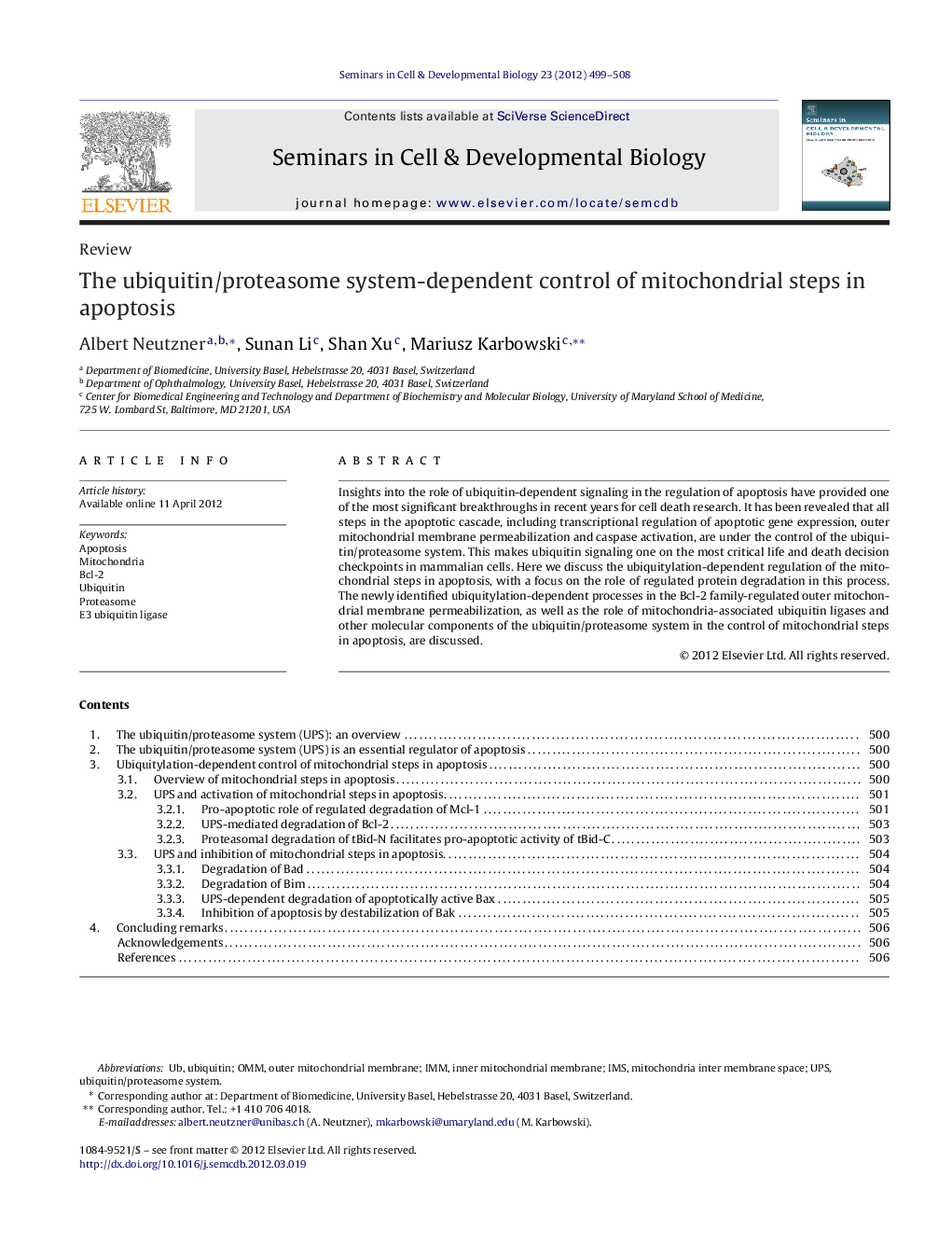| Article ID | Journal | Published Year | Pages | File Type |
|---|---|---|---|---|
| 2202698 | Seminars in Cell & Developmental Biology | 2012 | 10 Pages |
Insights into the role of ubiquitin-dependent signaling in the regulation of apoptosis have provided one of the most significant breakthroughs in recent years for cell death research. It has been revealed that all steps in the apoptotic cascade, including transcriptional regulation of apoptotic gene expression, outer mitochondrial membrane permeabilization and caspase activation, are under the control of the ubiquitin/proteasome system. This makes ubiquitin signaling one on the most critical life and death decision checkpoints in mammalian cells. Here we discuss the ubiquitylation-dependent regulation of the mitochondrial steps in apoptosis, with a focus on the role of regulated protein degradation in this process. The newly identified ubiquitylation-dependent processes in the Bcl-2 family-regulated outer mitochondrial membrane permeabilization, as well as the role of mitochondria-associated ubiquitin ligases and other molecular components of the ubiquitin/proteasome system in the control of mitochondrial steps in apoptosis, are discussed.
► The UPS-mediated protein degradation controls apoptosis progression. ► Pro- and anti-survival signals are synchronized through the UPS activity. ► The UPS controls balance of pro- and anti-apoptotic Bcl-2 proteins. ► The UPS controls key events in mitochondrial steps in apoptosis. ► Aberrant activities of mitochondria-acting UPS components contribute to cancer.
